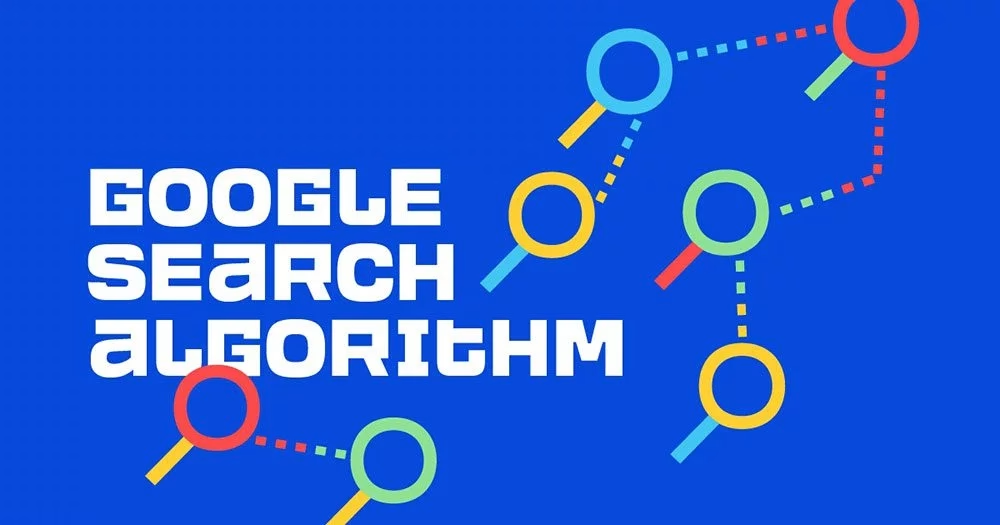By Ben Emos | Saturday, August 02, 2025 | 5 min read
In 2010, communications scholar Safiya U. Noble was simply searching for websites to share with her stepdaughter and nieces—educational resources, historical insights, or pop culture sites relevant to young Black girls. Like many, she turned to Google to see how its search algorithms worked—only to uncover a deeply troubling reality about Google search algorithms.
But what she found stunned her.
The top search result for “black girls” was a porn site: HotBlackPussy.com. The rest of the page was no better. It was flooded with sexually explicit content. According to Google’s algorithm in 2010, “black girls” weren’t defined by their achievements, culture, or potential—they were defined by pornography.
This moment sparked Noble’s long investigation into how search engines, particularly Google, reflect and amplify societal biases. Her work culminated in the now widely referenced book, “Algorithms of Oppression: How Search Engines Reinforce Racism.” Her thesis is bold but unflinchingly clear: search engines aren’t just mirrors of user behavior—they’re products of human design, and they carry the prejudices of their creators.
Fifteen years after Noble’s disturbing experience, the internet looks different—but how much has truly changed? In 2025, we repeated Noble’s search—not just for “black girls,” but for “white girls,” “Asian girls,” and “Arabic girls” as well.
The results were drastically improved. Google now returns links to educational articles, cultural sites, history, fashion, and pop culture. On the surface, the algorithm has been cleaned up. The pornography is gone. But this shift, while significant, may be more of a patch than a permanent fix.
As Noble told Berlatsky via email, “It’s insufficient to declare search results to be simply a matter of what users do online. Certainly that is part of it, but more importantly, Google is an advertising platform… Certain words, including various identities and communities, can be optimized to link to all kinds of nefarious content.”
Google’s Profit Engine: Optimized for Ads, Not Truth
To understand how and why certain content surfaces on Google, we have to look at how the company makes its money. Google generates over 85% of its revenue from advertising. As a result, the first page of search results is often dominated not by the most trustworthy or balanced information, but by the most profitable or popular.
In “Algorithms of Oppression,” Noble explains that this isn’t just a byproduct of capitalism—it’s built into the core of how Google ranks and serves information. “What shows up on the first page of search is typically highly optimized advertising-related content,” she writes. “Because its clients are paying Google for placement on the first page either through direct engagement with Google’s AdWords program or through a gray market of search engine optimization products.”
That means the system can be gamed. It rewards the loudest voices, not necessarily the most accurate or ethical ones.
The real issue is not that search engines are inherently evil or malicious. It’s that they are not neutral. And they never were.
Every algorithm is built by people, and people come with worldviews, assumptions, and yes—biases. The teams building these technologies are still overwhelmingly white and male, particularly in leadership roles. That perspective trickles down into the logic of what gets prioritized in a search result, what gets flagged as inappropriate, and what goes unnoticed.
Noah Berlatsky’s article highlights another chilling example. In late 2016, journalist Carole Cadwalladr searched “Did the Holocaust happen?” and the top result on Google was a link to Stormfront, a white supremacist hate site. This happened because Google was prioritizing popular results, even if they came from disinformation hubs.
This isn’t just a glitch—it’s a systemic flaw. Algorithms that rely on popularity as a proxy for relevance or truth are always at risk of amplifying racism, sexism, and conspiracy theories. And because Google shapes how billions of people find and interpret information, these algorithmic decisions have real-world consequences.
To Google’s credit, changes have been made. The company has worked to de-index explicitly harmful content from sensitive searches, especially those tied to race, ethnicity, and gender. Today, a search for “black girls” or “Asian girls” no longer mirrors what Noble found in 2010 or what Cadwalladr discovered in 2016.
But Noble cautions against thinking this is enough. Many of these fixes are reactive, applied only after backlash or bad press. They are not systemic redesigns. They do little to address the underlying structures that make such algorithmic biases possible in the first place.
And even with cleaner search results, the engine still thrives on advertising, still rewards SEO gaming, and still exists within a broader internet culture that often devalues marginalized voices.
So, Are Algorithms Still Biased?
In short: yes—but more quietly than before.
The most offensive content may no longer top your search results, but the system still prioritizes profit over truth, optimization over equity. The biases have not been eliminated; they’ve just been polished. What you see on your screen has been filtered through a web of commercial interests, social patterns, and hidden design choices that most users never think about.
As long as those structural issues remain untouched, search engines will continue to reflect—and reinforce—our society’s deepest inequalities.
Safiya Noble’s work and Noah Berlatsky’s reporting serve as vital reminders: we cannot afford to be passive users. We must be critical consumers of information, aware that even the simplest search bar is shaped by people, politics, and power.
Credit: This article is based on an article by Noah Berlatsky, featuring the work of Dr. Safiya U. Noble and her book “Algorithms of Oppression: How Search Engines Reinforce Racism.”
Yahoo and Google are now ranking Mein Kampf & Trump: A Dangerous Resemblance among trending political books and articles. What’s fueling the attention? Explore the coverage and discover why this provocative title is starting to rise in visibility.
Google Ranking: https://bit.ly/44LFppG
Yahoo Ranking: https://bit.ly/4lmhSCz
https://play.google.com/store/books/details/Ben_Emos_Mein_Kampf_Trump_A_Dangerous_Resemblance?id=_4RoEQAAQBAJ
How Trump’s Endless Demands for Investigations Are Pushing the DOJ Over the Edge
Trump Claims Epstein ‘Stole’ Virginia Giuffre From Mar-a-Lago Spa, Sparking Rift
Copyright © 2025 FeDlan News | FN, NewsRoom






